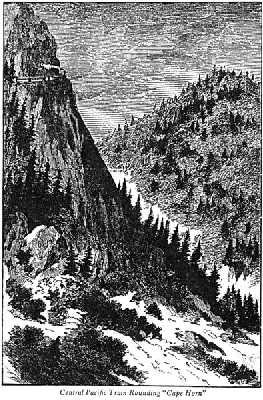A.J. Jacobs responds to Joe Queenan’s infamous review of The Know-It-All. While Jacobs’ essay is the kind of cathartic confessional that sometimes cuts too close to Believer-style “I’m okay, you’re okay” histrionics, it’s still a moderately interesting glimpse at how an author takes a review. But I still think Jacobs is coming across as petty as Rob Schneider. He sold books, didn’t he?
Month / February 2005
The Blake Bailey Drinking Game
It was Le Haggis that got me reading much of the Richard Yates’ catalog after the books languished in one of my bookpiles for several months. About the least that can be said about Richard Yates is that you should read everything he’s written immediately. Stewart O’Nan’s essay is a good place to start., if you’re unfamiliar with his life and work.
Along the way, I read Blake Bailey’s excellent biography, A Tragic Honesty, which proved far more sad and gripping than I expected it to be. While Bailey is a dutiful biographer, I did notice a few commonalities. Since Bailey’s bio seems to be making the rounds in the litblogosphere, I’ve devised a drinking game for those who haven’t yet read the book — that is, if you’d like to be thoroughly sloshed after just one chapter.
Drink if:
- Richard Yates drinks.
- Richard Yates smokes.
- Richard Yates yells at someone.
- Richard Yates criticizes a story with ruthless honesty.
- Richard Yates damns the New Yorker.
- Richard Yates tries to find work.
- Richard Yates’ living quarters is described as a sad and impoverished place.
- Richard Yates hits on a younger woman.
- Kurt Vonnegut shows up.
- Andre Dubus shows up.
- Richard Yates asks for an advance.
- The influence of F. Scott Fitzgerald is referred to.
- Richard Yates has difficulty breathing.
- Dookie Yates shows up.
- Richard Yates can’t climb stairs or has difficulty walking.
- When the phrase “to hell with _____” appears.
- John Irving’s The World According to Garp is trashed.
- Yates vomits.
- Yates hacks.
- Yates spends quality time with one of his daughters.
- Hollywood is trashed.
- Yates has a mental breakdown.
Rummy Vows More Liver Spots and Pledges Sustained Transformation Into Evil Mr. Burns Character
Cape Horn Revisionism?
 If you’ve ever made the drive to Reno or you’ve had the good fortune of riding today’s version of the Central Pacific Railroad, chances are you’re familiar with the Cape Horn grade. Near Colfax, the railroad juts upward and if you are fortunate enough to ride the railroad, one makes out a stunning view overlooking the American River.
If you’ve ever made the drive to Reno or you’ve had the good fortune of riding today’s version of the Central Pacific Railroad, chances are you’re familiar with the Cape Horn grade. Near Colfax, the railroad juts upward and if you are fortunate enough to ride the railroad, one makes out a stunning view overlooking the American River.
The story promulgated over the years is that the grade was effected by Chinese laborers. White men could not do it. Indeed, they could not be coaxed to stick around, despite the best efforts of CP flack men. The Chinese did. And in fact, when they saw the diabolical mountain, they persuaded the engineers that they could cut through it. They did so by constructing sturdy bamboo baskets hung ominously over a vertical precipice. The laborers worked tirelessly, drilling gunpowder into the ravine and exploding staggering amounts of mountain rock for the cutaway view in existence today. And the tale of Cape Horn’s creation (along with the exploitation of Chinese laborers) stands as a West Coast legend comparable to Dutch settlers bamboozling Manhattan Island from natives for about twenty-four dollars in jewelry.
Edson T. Strobridge, however, disagrees with this well-established story (spelled out in nearly every railroad history book). While I admire the audacity of his brazen stance, one has to consider his ulterior motives. It ws James Harvey Strobridge who was, after all, the foreman of the project. Strobridge, so the story goes, was initially resistant to using Chinese labor. But when work progressed, even he had to confess that they got the job done.
One of Edson T. Strobridge’s chief defenses is that no record of the Cape Horn cut can be found in Collis P. Huntington’s papers. Well, it’s worth noting out that the CP also didn’t keep a record of Chinese casualties either. It strikes me as a bit naive for anyone to assume that businessmen would memorialize their more illicit deals.
It’s also difficult for anyone to remain objective when they are more concerned with restoring the reputation of “much maligned” ancestors. The history of the railroad is ripe with fantastic achievements and scandals from laborers and businessmen alike. But when hot heads get in the way of exposing human achievement, it’s about as distasteful as reading a priapic military historian who arrives on the scene with preconceived notions.
Neal Stephenson Five Minute Interview
We certainly can’t compete with this, but it’s worth noting that back in late fall, Return of the Reluctant coaxed Neal Stephenson into an interview.
STEPHENSON: Five minutes, son. Can’t you see you’re cutting into my brooding time?
RotR: Okay, I’m very sorry. You’re a novelist of ideas. I’m positive you have additional wisdom to impart.
STEPHENSON: It’s all in the books and the Wiki. Do you need me to hold your hand? But if you need an example for your little article…
RotR: It’s a blog, actually.
STEPHENSON: Oh, one of those. Okay, here goes: The very design of the bench you’re sitting on right now developed out of serious scientific talks in the Netherlands. The bench is a recruiting center for libertarians, meaning that if enlightened geniuses hadn’t devised an acceptable length between the two ends, your posterior might not feel as safe and comfortable as it does right now and as it will no doubt feel tomorrow.
It is the terrorist who favors a comfy chair, while the government advocate prefers a sofa. By this I mean that only the libertarian is willing to apply sanded wood, generally coming to us from an export processing zone, to his buttocks and sit up straight, sitting down like a real man. You will not find slouched shoulders on a libertarian, nor will you find a limp penis.
These are some of the many conundrums I’ve worked out in my novel. And it is why I am so misunderstood.
RotR: But you’re asking readers to sit through 3,000 pages of scientists and philosophers talking about ideas. Surely, even you have to confess that this is a bit much for a narrative. Why didn’t you come out with a treatise? At least with Vollman, you get gripping first-person accounts in Third World nations.
STEPHENSON: I don’t need editors. Editors restrict the natural creative impulse. After the Civil War, fiction followed the logical course that science and technology did. It developed plot, characters, prose, and other stylistic devices. Out of this came the MBA program, which came into being shortly after the Manhattan Project. What I am doing is harkening back to the antebellum novels, the novels of real ideas.
RotR: Most of them are forgotten or out of print.
STEPHENSON: Have you even read System of the World?
RotR: It only came out yesterday.
STEPHENSON: Are you a member of the Libertarian Party?
RotR: No. But you remind me of a skinnier John Milius.
STEPHENSON: Well, you’re one of the many reasons I don’t do these interviews. Please dispense with your sense of humor. You might be able to accomplish something without such a frivolous personality trait.
